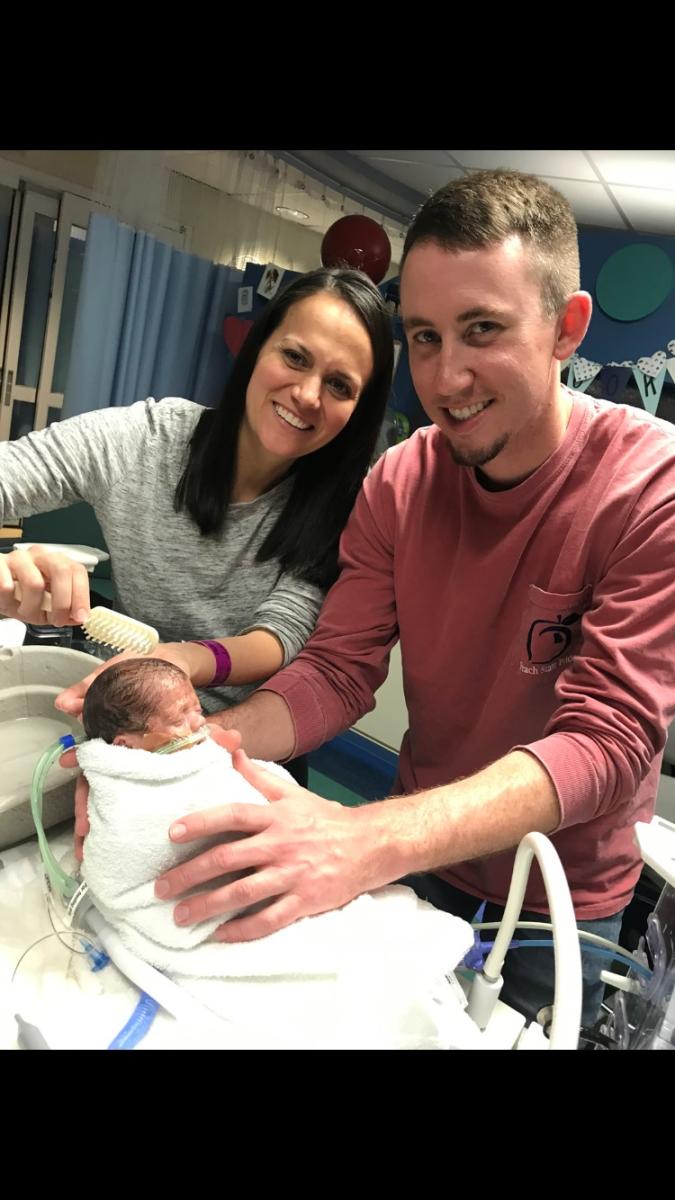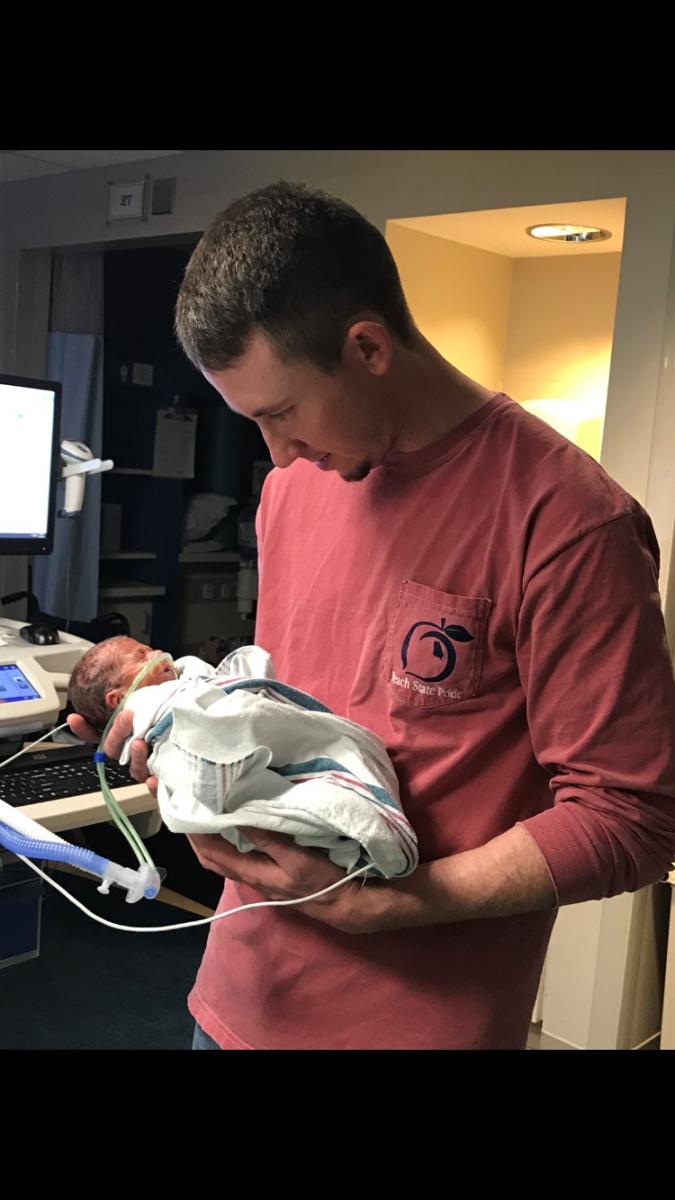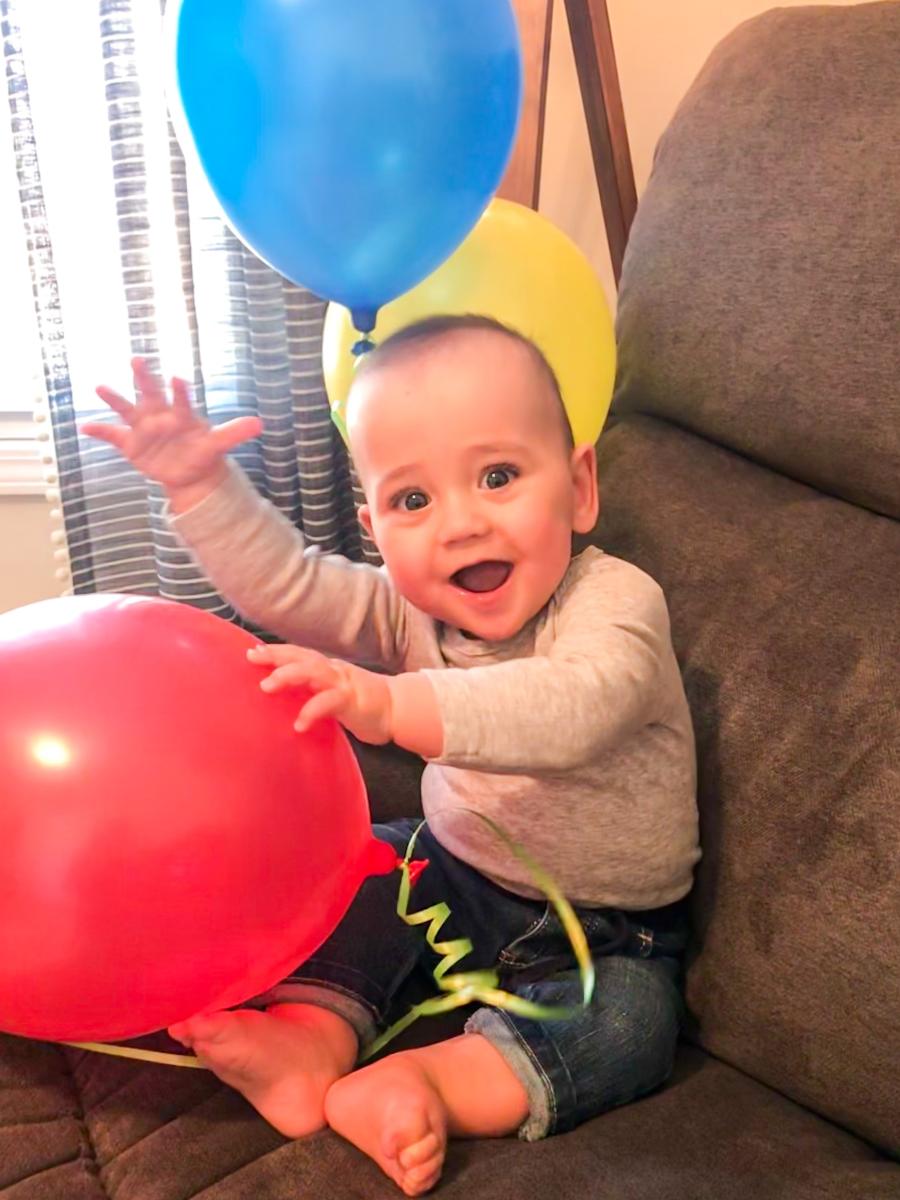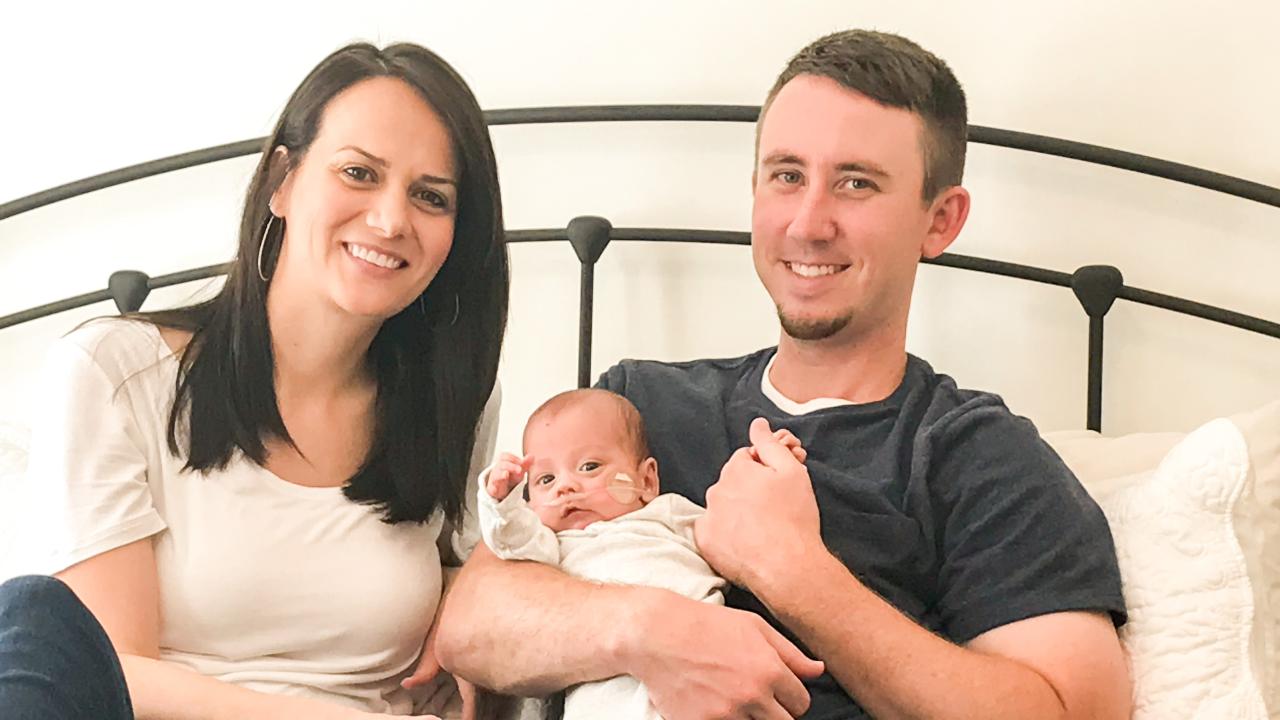Cato Family Edit v10
“Everything was in place for us to have that experience, even though it wasn't planned. And I wouldn't wish it on anybody. I'm so thankful that we were there and we had that experience,” said Katie.
For parents of a preterm baby who suffered through 103 days in the neonatal intensive care unit (NICU), that’s a pretty optimistic recollection. But the Cato family story takes an interesting spin, one we need to take a step back to understand.

Surrounded by farmland in rural northeast Georgia, Brooks Cato lives with mom and dad, Katie and Neil. His parents got married in 2016 and like many young couples knew from day one that they wanted to have a family. Far from easy, it was an emotional and draining time. “It didn't happen the traditional way,” says Katie. They needed assistance through a fertility doctor and in vitro fertilization (IVF). On the plus side, they found success going down that route. In fact, Katie was happy that “everything was trucking along.”
Then, they hit 24 weeks. At that point, they noticed a lack of movement. At Katie’s obstetrician, a heart rate was present. However, that same week, an ultrasound found some issues with blood flow through the umbilical cord. Katie and Neil traveled to Greenville, South Carolina, 45 minutes away, the nearest city with more advanced equipment. At this monitoring, they couldn't detect the baby’s heartbeat. Next came a whirlwind of doctors and specialists—30 to 40 of them—including a high-risk fetal specialist. Katie and Neil weren’t going anywhere. A neonatologist gave them the rundown of what to expect when Brooks was born—if he survives delivery.
Shocked, and as first-time parents, they were overwhelmed. Four days later, at 25 weeks, Brooks entered the world through Cesarean birth.
“The NICU team was right there waiting,” remembers Katie. Brooks was in pretty bad shape when he was delivered. “We were terrified,” dad Neil adds. “It was touch and go. So, yeah, it was very hard.”

The NICU can be frightening with its monitors and bells and hustle and bustle. The Catos needed guidance and help. Then, something wonderful happened.
“We went down several hallways and into a small conference room,” says Katie. “That's where we met Rachel and Lauren.” Rachel Balck was their March of Dimes NICU Family Support® (NFS) Program Coordinator, and Lauren LaRosa was there interning to become a NICU nurse and receiving guidance and support from Rachel. “They gave us a rundown of what our life was going to be within NICU, what we could expect,” Katie recalls. But here’s the twist—Lauren had been a preterm baby who spent 89 days in the NICU at the very same hospital, and Rachel was her family’s very same NFS Program Coordinator. As Neil puts it: “We heard what March of Dimes does and what they offer. And then after hearing Lauren's story, I'd say both of us walked out with a lot more hope.”
At a March of Dimes introduction to the NICU class, Rachel provided them information such as expectations on how their baby would be fed once he graduated to bottle feeding, how to talk to the medical team as well as March of Dimes resources available to NICU moms and families.
Katie says, “Lauren's story gave me personally a mission to be Brooks' number one advocate, to learn what I needed to do to be his voice and take steps to help him develop every way he could.”
Brooks was discharged from the NICU after 103 days and was brought home on oxygen. “We were so fortunate with our NICU family,” says Katie. “They provided us with every ounce of education that we needed for him to come home. And through every step of the way, March of Dimes was with us.” They made sure Katie and Neil had everything, and worked with the hospital, the social worker and discharge nurses to ensure everything was lined up with the home oxygen. “We received a special going home book from our coordinator—Rachel was probably as excited as we were!

Rachel, Lauren and the Catos kept in touch after Brooks left the NICU. Rachel requested updates on how Brooks was doing, as well as pictures. And the Catos celebrated Lauren’s high school graduation, and she helped them celebrate Brooks’ birthday. When Lauren was ending her internship with the hospital, she had stopped by to give Brooks a gift of a small stuffed elephant. “That was special because we used it in our milestone pictures when Brooks gained a certain weight or transitioned to an open crib or was able to wear clothes,” says Katie. Brooks’ parents would take the milestone picture and always include the elephant who they named Ellie, which is short for elephant, but also has two Ls that stand for Lauren LaRosa. When Brooks turned a year old, Lauren mailed him a gift. “It was an elephant-related children's book that looked just like Ellie,” Katie laughs.
Katie and Neil are grateful for their experience and strive to pay it forward. They started a tradition where they collect 103 items from friends, family and their social network, in honor of the 103 days Brooks was in the NICU. Then on his birthday, they met Rachel at the hospital who dispersed the gifts to NICU families.
Katie encourages other NICU families and hopes that they take advantage of all the March of Dimes resources available to them. “Talk to the March of Dimes coordinators, talk to the nurses, they're all there to support families,” Katie says. “They're the baby's biggest cheerleaders.”
“After meeting Lauren and just hearing her story, it 100 percent changed my perspective and outlook of what our NICU journey was going to be,” she continus. “It did a 180 from doom and gloom to ‘we're gonna rock this.’ I love that.”
For the Catos, March of Dimes and our NFS program made all the difference. If we can open more NFS sites around the country, even more families can have positive outcomes.
